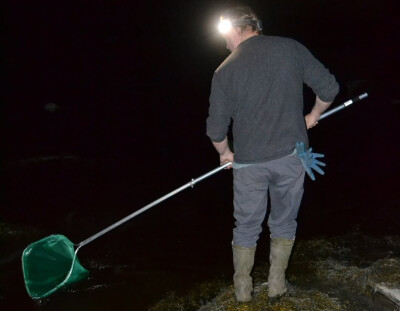A federal jury has convicted Don Michael Rynn of Augustine, Fla., on charges of falsifying federal fishing records and lying to federal investigators, following a three-day trial in South Carolina.
On March 21, Rynn, who managed several commercial fishing vessels in the McClellanville, S.C., area — including the Maximum Retriever and the Crystal C — was found guilty of knowingly misreporting the volume and species of fish caught during a March 2023 fishing trip and attempting to cover up the violations.
According to court evidence, Rynn instructed his son, the captain of the Maximum Retriever, to disregard federal catch limits during a commercial fishing expedition on March 21, 2023. When the vessel returned nearly a week later, it carried approximately 560 pounds of snowy grouper and 450 pounds of grey tilefish, far exceeding federal quotas.
Federal prosecutors say Rynn coordinated a deliberate effort to conceal the overfishing. Upon the Maximum Retriever’s arrival in McClellanville shortly after midnight on March 27, Rynn oversaw the offloading of the excess catch onto the Crystal C and into his personal truck. The fish were then delivered to a seafood dealer in Georgetown, S.C., and disposed of in an attempt to obscure their origin.
Rynn later filed a mandatory trip report that falsely stated the Maximum Retriever had stayed within legal limits and claimed that the Crystal C, which had not been fishing, was responsible for a portion of the catch.
A tip to the South Carolina Department of Natural Resources (SCDNR) prompted a federal investigation by the National Oceanic and Atmospheric Administration (NOAA), the U.S. Coast Guard, the SCDNR, and the SCDNR Saltwater Team, which ultimately led to Rynn's indictment.
During an interview with NOAA agents in October 2023, Rynn lied again, claiming that the fish had been contaminated by a fuel spill and discarded. He also suggested that a U.S. Coast Guard report regarding a discharge into Jeremy Creek was inaccurate and should have implicated the Crystal C to support his story.
Rynn faces a maximum sentence of five years in federal prison, a $250,000 fine, restitution, and up to three years of supervised release. U.S. District Judge Richard M. Gergel will impose the sentence after reviewing a report from the U.S. Probation Office.
"Those who attempt to circumvent federal fishing regulations and deceive law enforcement will be held accountable. Our marine resources are vital, and we will not tolerate those who prioritize personal gain over sustainable practices and the rule of law,” said Acting U.S. Attorney Brook B. Andrews for the District of South Carolina. “This conviction underscores the collaborative efforts of NOAA and SCDNR in protecting our fisheries and ensuring fair competition for all."
“The prosecution of this case and the jury’s verdict emphasizes the importance of holding violators accountable for the harm caused by lying to law enforcement officers and undermining federal fishery regulations. We work closely with our state joint enforcement partners and other federal agencies to detect and identify potential illegal activity related to federal fisheries regulations,” NOAA Office of Law Enforcement Southeast Division Acting Assistant Director Paige Casey said in a statement. “Through our partnerships, we are able to successfully prosecute and convict individuals, such as in this case, who lie to law enforcement officers and who illegally harvest marine resources that could disrupt our fair-trade market.”
“On behalf of all involved, we extend our deepest gratitude to NOAA, the U.S. Coast Guard, the U.S. Attorney's Office, and our dedicated officers for their unwavering commitment and collaboration in protecting our fisheries, said Col. Chisholm Frampton of the SCDNR Law Enforcement Division. “Together, we have taken a stand against a blatant disregard for the law, ensuring our vital marine resources are preserved for future generations.”







